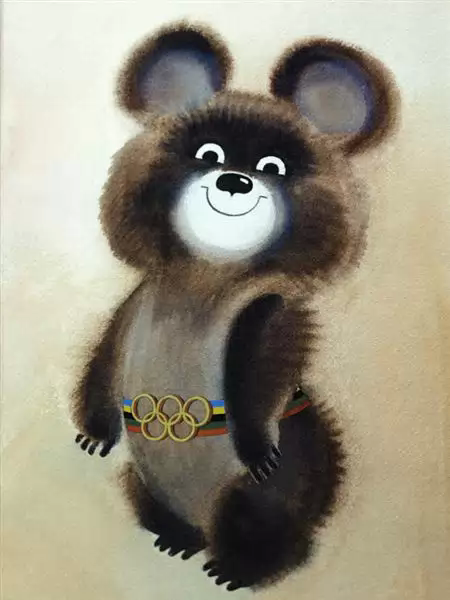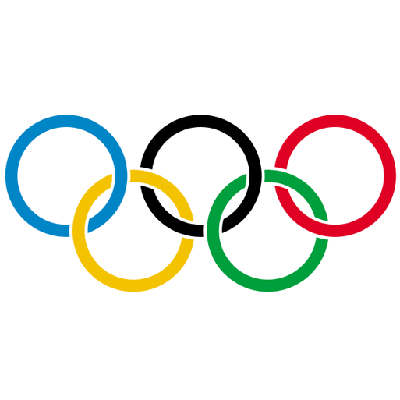
реферат по английскому 2
.docxAbstract
In English on the topic: "The history of the Olympic Games"
Performed: 1st year student
Bulatov Tatiana
Checked: Kirsanov Alla D.
Chelyabinsk 2013
Plan
1. Introduction to Art. 3
2. The emergence of the Olympic Games Art. 5.4
3. Conclusion Art. 6
4. Bibliography, Art. 7
Introduction
"There is nothing more noble than the sun,
giving as much light and heat. So
and people glorify those competitions,
majestic, with nothing - the Olympic Games. "
Pindar
These words of the ancient Greek poet Pindar, written two thousand years ago, not forgotten to this day. Not forgotten, because the Olympic competitions organized at the dawn of civilization, continue to live in the memory of mankind.
No number of myths - one another! - The origin of the Olympic Games. Honorary founders believe their gods, kings, rulers, and heroes. Established with the obvious one thing is certain: the first known from antiquity Olympics held in 776 BC.
Every Olympic Games turned into a feast for the people, a sort of congress for the rulers and philosophers, the competition for sculptors and poets.
Days of Olympic celebrations - days of world peace. To the ancient Greeks the games were an instrument of peace, facilitate negotiations between cities to promote understanding and communication between countries.
Olympics exalted man, for the Olympics reflect outlook, the cornerstone of which was the cult of perfection of mind and body, the idealization of harmonious development of man - a thinker and an athlete. Olimpionikov - winner of the game - fellow bestow honors, which were awarded the gods in their honor monuments created during his lifetime, were composed laudatory ode feasts. Olympic hero drove to his home town on a chariot, dressed in purple, crowned with a wreath, not rode through the usual gate and through a hole in the wall, who on the same day, closed up to Olympic victory went to the city and never left it.
3
The emergence of the Olympic Games
Center of the Olympic world was a sacred ancient district of Zeus at Olympia - grove along the river Alpheus at the confluence of the creek on luggage. This beautiful town of Greece almost three hundred times arranged traditional obschegrecheskie competition in honor of the god of thunder. Ionian Sea winds disturbed the mighty pine and oak trees on a hill Kronos. At its foot is spread over a protected area, a quiet time in four years, violated the Olympic celebration.
This is the Olympia, the cradle of the game. On its original grandeur reminiscent of today is not the silent ruins. Evidence of ancient authors, statues and images on vases and coins, paints a picture of the Olympic spectacle.
Near the sacred Olympia grew later eponymous town surrounded by orange and olive groves.
Now the Olympia - a typical country town living tourists that flock to the Olympic ruins around the world. It absolutely everything Olympic, from street names and hotels to meals at taverns and souvenir in countless lavchenkah. He Dostoprimechatelen its museums - archaeological and Olympic. If not for the treasures of ancient times, it is possible to leave the town without pity, to pass a stone bridge over a stream on luggage on the other side of which - reserve Olympia. Unremarkable entrance to the sacred grove. Under the feet of blackened marble steps so sacred limestone slabs. It should reach out, and you touch up branches of the wild olive tree, which was crowned head olimpionikov. Above his head unto his crown mighty pines and oaks. A higher - blue sky, under a tent which was erected here magnificent buildings. Alas, they did not spare any earthquake or flooding, or time. But how amazing the remains of former greatness!
Still preserved its fame owes entirely Olympia Olympic Games, although they're only held once every four years, and lasted several days. In between games, a huge empty stadium, located nearby, in the valley near the hill of Kronos. Overgrown grass running track stadium and arena fringing hill slopes and embankments, tribune for the spectators. Not heard the sound of hooves and the roar of the chariots drawn by horses at a nearby racetrack. There was practicing athletes in the spacious square surrounded stoyami gymnasium and a monumental building palaestra. No voices in leonidayone - the hotel for the guests.
But during the Olympic Games here teems with life. Tens of thousands of athletes and visitors arriving to fill out ambitious for the time and sports facilities. Their ensemble in composition based on little different from modern sports complexes. In those early days at the Olympics reveals only winner in individual events competition - Olimpionik.
4
In modern terms, no fixed absolute achievement athletes. Perfection competition venues so few people are interested. All took more ceremonial side holiday dedicated to Zeus.
As you know, the ancient Greek history with some degree of confidence reflects mythology. One of the myths of ancient Greece poetic story of how there was the Olympic stadium. If you listen to the legend, it was Heracles founder of Crete. Around the 17th century. BC. e. He and his four brothers landed on the Peloponnesian peninsula. There hill to the grave titan Kronos, according to legend losers in the son of Zeus, Hercules in honor of the victory over his father, grandfather, organized the competition with his brothers in the race. To do this, on-site at the foot of the hill he measured the distance in 11 stages, which corresponded to 600 feet. makeshift treadmill 192 m long and 27 cm was the basis of the future Olympic stadium. For three centuries, it is at this stage is not a primitive regularly held game, later named the Olympic.
Olympics gradually won recognition of all states located in the Peloponnese, and to 776 g BC. e. obschegrechesky acquired character. That marked the beginning of a tradition to perpetuate the names of winners.
The eve of the inauguration of the Games near the stadium on the river Alpheus scatter ancient tent city. Here among a lot of sports fans rushed and various commodities traders, owners of entertainment venues. So in ancient times taking care of preparing for the games to get involved in organizational matters most varied social strata of the population of Greece. Five days officially lasted Greek festival dedicated glorification of physical strength and unity of the nation, worshiping beauty deified man. Olympic Games on the growth of their popularity influenced the center of Olympia - Altis. More than 11 centuries in Olympia held obschegrecheskie game. These are the games were held in other centers of the country, but none of them could be the Olympic.
5
Conclusion
Since ancient years the Olympic Games have been the major sporting event of all time. In the days of the competition in all the earth is becoming a consensus and reconciliation. War breaks out and all the strong and decent people competed in a fair fight for the best.
For many centuries, the Olympic movement has overcome many obstacles, forgetting and exclusion. But no matter what the Olympics are still alive to this day. Of course this is not the event, which was attended by naked boys and the winner who enters the city through the breach in the wall. Today, one of the biggest competitions in the world of events. Games are equipped with the latest technology - the results of the next computer and camera, now determined to within thousandths of a second, athletes and their results depend largely on the technical equipment.
Through the media, not a single person in the civilized world. Who did not know - what the Olympics would or would not see competitions on TV.
Over recent years the Olympic movement is extensive and capital games while they are carrying out the capitals of the world. Sport plays an important role in people's lives!
6
Список используемой литературы
1. Ю. Шанин «От эллинов до наших дней»; Москва 1975.
2. В. Барвинский, С. Вилинский «Рождено Олимпиадой»; Москва 1985.
3. Б. Базунов «Эстафета олимпийского огня»; Москва 1990.
-
Л. Кун «Всеобщая история физической культуры и спорта»; Москва 1987.
7


